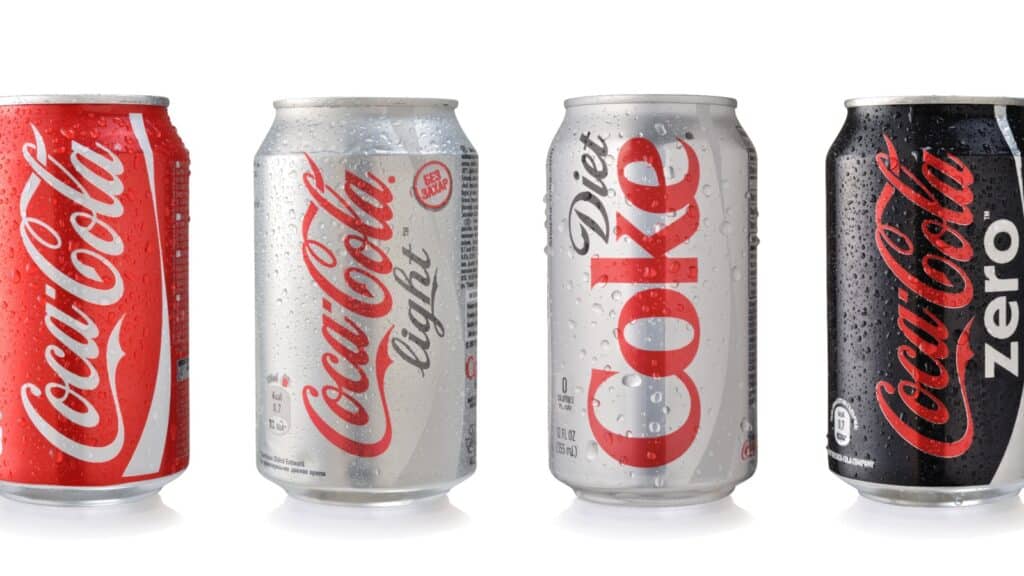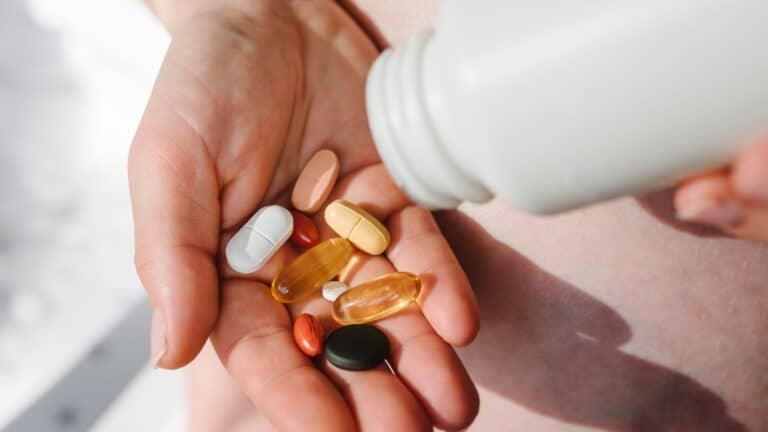The Hidden Dangers of Diet Soda: Why It May Be Worse Than Sugar-Sweetened
When choosing between a regular soda and its diet counterpart, many people opt for the diet version, believing it to be the healthier option. After all, diet sodas are sugar-free, often containing zero calories, which seems like a perfect solution for those looking to manage their weight or reduce sugar intake. However, recent research and expert opinions suggest that diet sodas may not be the healthier choice they appear to be. In fact, some doctors argue that diet sodas could be more harmful than their sugar-sweetened counterparts. This article explores the reasons why diet soda might be worse for your health, drawing on expert insights and scientific evidence.
Artificial Sweeteners: The Hidden Culprit

One of the primary differences between diet soda and regular soda is the use of artificial sweeteners, such as aspartame, sucralose, and saccharin. These sweeteners are many times sweeter than sugar, allowing manufacturers to create a sweet taste without the calories. However, Dr. Susan Swithers, a professor of psychological sciences at Purdue University, warns that artificial sweeteners may confuse the body’s natural ability to regulate calorie intake.
Impact of Artificial Sweeteners On The Body

“Artificial sweeteners can disrupt the body’s learned responses to sugar, potentially leading to overeating,” Dr. Swithers explains. “When you consume something sweet, your body prepares for an influx of calories. But when those calories don’t arrive, it can cause confusion in the metabolic system, leading to an increased craving for sweet, high-calorie foods later on.”
Increased Risk of Metabolic Syndrome

Metabolic syndrome is a cluster of conditions that increase the risk of heart disease, stroke, and type 2 diabetes. These conditions include increased blood pressure, high blood sugar, excess body fat around the waist, and abnormal cholesterol levels. Dr. Vasanti Malik, a nutrition research scientist at Harvard T.H. Chan School of Public Health, highlights the link between diet soda consumption and an increased risk of metabolic syndrome.
Studies Show…

“Studies have shown that individuals who consume diet sodas regularly are at a higher risk of developing metabolic syndrome compared to those who drink sugar-sweetened beverages,” says Dr. Malik. “The artificial sweeteners in diet sodas may interfere with insulin sensitivity and glucose metabolism, which are key factors in the development of metabolic syndrome.”
Potential Negative Effects on Gut Health

The health of your gut is crucial for overall well-being, affecting everything from digestion to mental health. Diet sodas have been found to negatively impact gut health, largely due to the artificial sweeteners they contain. Dr. Zhigang Liu, a gastroenterologist, points out that certain artificial sweeteners can alter the composition of gut bacteria, leading to dysbiosis, or an imbalance in the gut microbiome.
Gut Health Imbalances

“Sucralose, in particular, has been shown to reduce beneficial bacteria in the gut while promoting the growth of harmful bacteria,” Dr. Liu notes. “This imbalance can contribute to a range of health issues, including digestive problems, obesity, and even mental health disorders like depression and anxiety.”
Associations with Weight Gain and Obesity

While diet soda is often marketed as a weight-loss aid, research suggests that it may actually contribute to weight gain. Dr. Sharon Fowler, an epidemiologist at the University of Texas Health Science Center, has conducted extensive research on the relationship between diet soda consumption and weight gain.
Weight Loss? How About Weight Gain!

“People who drink diet sodas tend to gain more weight over time compared to those who drink regular sodas,” Dr. Fowler explains. “This paradoxical effect may be due to the brain’s response to artificial sweeteners. When you consume something sweet without the associated calories, your brain may increase your appetite for high-calorie foods, leading to overeating.”
Increased Risk of Cardiovascular Disease

Cardiovascular disease is one of the leading causes of death worldwide, and diet soda may increase the risk of developing heart-related issues. A study published in the Journal of the American College of Cardiology found that women who consumed diet drinks daily had a significantly higher risk of heart attack and stroke than those who rarely consumed these beverages.
Heart Health Is Affected

Dr. Ankur Vyas, a cardiologist and the lead author of the study, states, “Our research suggests that there may be a connection between the consumption of artificially sweetened beverages and an increased risk of cardiovascular events. While the exact mechanisms are still being studied, it’s clear that regular consumption of diet soda is associated with poorer heart health.”
Impact on Kidney Function?

Diet sodas may also have a detrimental effect on kidney function. Dr. Julie Lin, a nephrologist at Brigham and Women’s Hospital, has studied the impact of diet soda on kidney health and found a concerning link.
Kidney Function Is Affected, Too

“We observed a significant decline in kidney function among women who consumed more than two diet sodas per day,” Dr. Lin reports. “The artificial sweeteners, particularly aspartame, may increase the risk of kidney damage over time, possibly due to their impact on the kidneys’ ability to filter waste.”
Potential for Increased Diabetes Risk

Despite being sugar-free, diet sodas have been associated with an increased risk of developing type 2 diabetes. Dr. Camila Corvalan, a public health researcher, emphasizes that the regular consumption of diet soda may lead to glucose intolerance, a precursor to diabetes.
“Artificial sweeteners can trigger changes in glucose metabolism, leading to insulin resistance,” Dr. Corvalan explains. “This can increase the likelihood of developing type 2 diabetes, even in individuals who do not consume large amounts of sugar.”
Is Diet Soda Really the Healthier Choice?

While diet sodas are often chosen as a healthier alternative to sugar-sweetened beverages, mounting evidence suggests that they may pose significant health risks. From metabolic syndrome and weight gain to heart disease and kidney damage, the potential dangers of diet soda are becoming increasingly clear. As Dr. Swithers aptly puts it, “Just because something is calorie-free doesn’t mean it’s risk-free.”
Consider Alternatives

For those looking to improve their health, it may be wise to reconsider diet soda as a go-to beverage. Instead, opting for water, herbal teas, or other natural, low-calorie drinks may be a safer and healthier choice. As the research continues to evolve, one thing is certain: when it comes to choosing between diet soda and sugar-sweetened soda, the best choice might be neither.
Can The Human Body Adapt To The Rising Heat? And What Are We Doing If We Can’t?

As climate change intensifies, the human body’s ability to adapt to rising temperatures is becoming a critical concern. According to Dr. Camilo Mora, an expert on heat’s effects on human physiology, “The human body has remarkable adaptability to heat, but there are limits to how much we can physiologically adapt to rising temperatures due to climate change.” This introduction explores the extent of our physiological adaptations, the challenges we face as global temperatures climb, and the potential consequences if our bodies fail to keep pace with environmental changes.
READ: Can The Human Body Adapt To The Rising Heat? And What Are We Doing If We Can’t?
Is There A Link Between Being A ‘Good Girl’ And Autoimmune Disease In Women?

Women Rising®, an 11x award-winning women’s empowerment and media company founded by autoimmune-diagnosed, 15x award-winning documentary filmmaker, Sara Hirsh Bordo, recently released findings from Autoimmunity and the “Good Girls” ™ the first-ever sociological survey exploring the intersection between empowerment and autoimmunity in American women. READ: Is There A Link Between Being A ‘Good Girl’ And Autoimmune Disease In Women?
Join Us

Join us on this empowering journey as we explore, celebrate, and elevate “her story.” The Queen Zone is not just a platform; it’s a community where women from all walks of life can come together, share their experiences, and inspire one another. Welcome to a space where the female experience takes center stage. Sign up for our newsletter so you don’t miss a thing, Queen!






